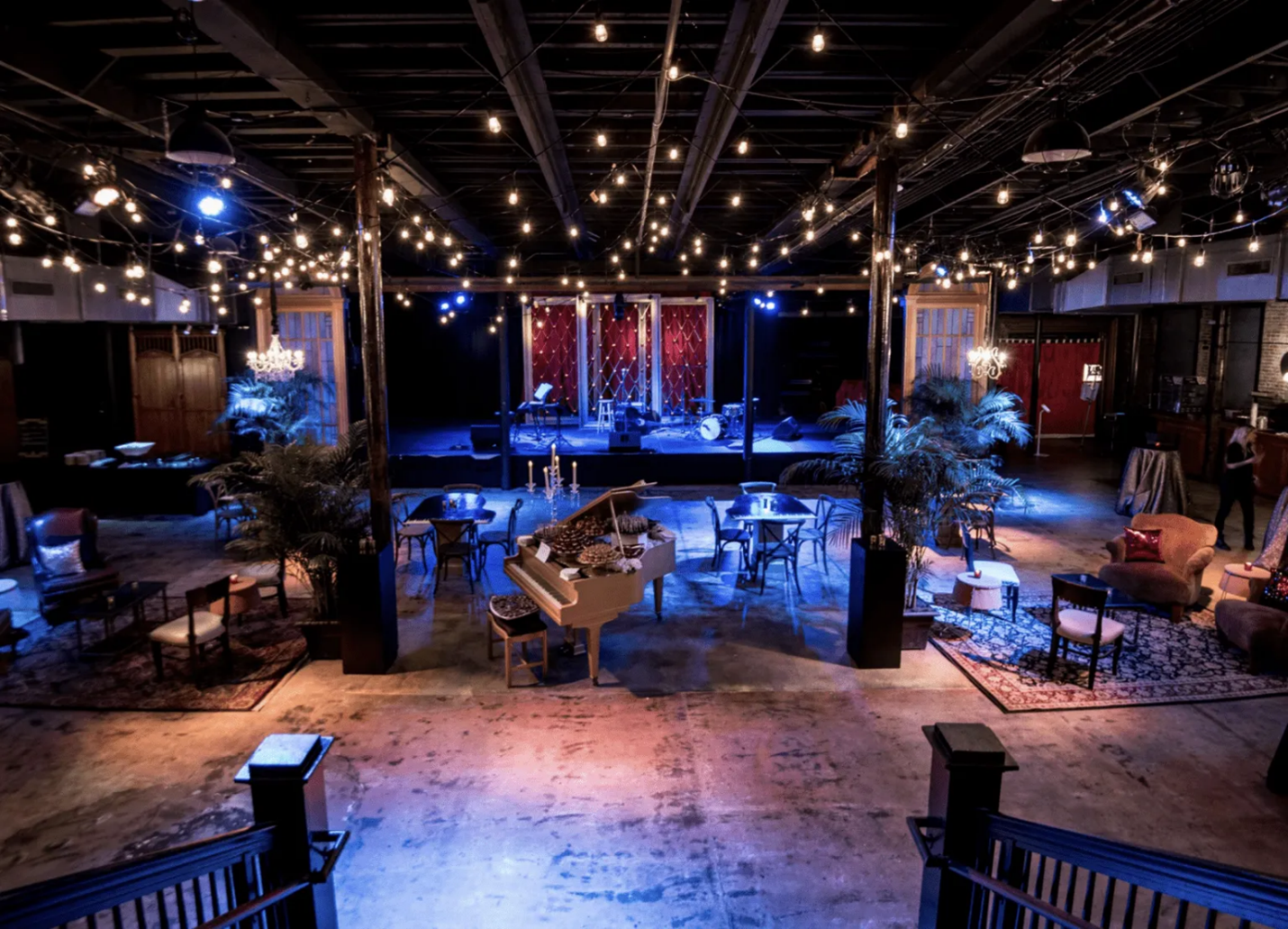
Whether you're planning a conference, gala, workshop, wedding, corporate retreat, or a special celebration, selecting the right event space is crucial to the success of your gathering. The venue sets the tone, influences the attendee experience, and impacts your event’s overall logistics. With countless options available, including versatile reception halls, finding the perfect location can seem overwhelming. However, understanding the key factors that define the best event space for your needs can simplify the process and ensure that your event runs smoothly.
This comprehensive guide walks you through the process of finding and renting the ideal event space. From understanding your event’s requirements to negotiating contracts and maximizing the venue’s amenities, we’ll cover everything you need to know to make an informed decision.
Before you begin searching for event spaces, it’s important to clearly define your event’s needs and objectives. Take time to assess the type of event you’re hosting, the number of guests, and any specific requirements that may influence the venue selection.
The nature of your event will play a major role in determining the best venue. A conference or trade show typically requires a large, open exhibition hall with plenty of breakout rooms, AV capabilities, and space for exhibitors. A corporate workshop or team-building retreat might require smaller, more intimate rooms conducive to group work and presentations. A gala or wedding may require a grand ballroom or a scenic outdoor space with sophisticated catering options.
Knowing what type of event you’re hosting will help you filter out venues that don’t fit your needs.
The number of people attending your event is one of the first considerations when searching for a venue. Event spaces vary greatly in size, so it’s important to have a rough estimate of your guest count before beginning the search. Some venues can accommodate hundreds or even thousands of guests, while others are better suited for small, intimate gatherings.
Be sure to factor in not just the number of attendees, but also potential staff, vendors, and speakers who will need space. Overcrowding can be uncomfortable for guests, while underutilizing a large space may feel empty and impersonal.
Consider any special requirements your event may have. Does your event require:
Audio/Visual Equipment: Will you need projectors, microphones, sound systems, or video conferencing capabilities?
Catering: Do you require in-house catering, or will you need to bring in external food and beverage vendors?
Décor or Theming: Do you need a venue that allows for extensive customization or specific décor for your event?
Parking and Transportation: Is the venue easily accessible for guests, with sufficient parking or proximity to public transportation?
Understanding your specific requirements will help you narrow down your options and focus on venues that can meet your needs.
Establishing a budget is a critical step when searching for an event venue. The cost of renting an event space can vary widely depending on factors such as location, size, amenities, and time of year. Setting a clear budget early on will help you make more informed decisions and avoid wasting time on venues that are outside your price range.
When creating a budget, keep in mind that the rental fee for the venue is just one component of the total cost. Other costs to consider include:
Catering: Will the venue provide in-house catering, or will you need to hire an external caterer? Be sure to factor in the cost per person for food and drinks.
Staffing: Some venues include event staff as part of the rental, while others charge extra for security, bartenders, waitstaff, or technical support.
Decorations and Setup: Are you planning to decorate the venue, or will the venue provide decorations? Will you need to rent additional furniture or equipment?
Audio/Visual Equipment: If the venue doesn’t provide AV equipment, you may need to rent it separately or hire an AV company.
Transportation and Parking: Don’t forget to account for the costs of parking or transportation services, particularly if the venue is in a remote location or requires valet parking.
The location of your event space is a significant factor in both attendee convenience and the overall success of your event. Here are some key location considerations to keep in mind:
The venue should be easily accessible for your attendees, whether they are traveling from nearby or arriving from out of town. Consider the proximity to public transportation, parking availability, and any necessary shuttle services to and from the venue. If your event will have attendees from various locations, choosing a venue in a central, easily reachable area will increase attendance and convenience.

If your event spans multiple days or your attendees are coming from out of town, proximity to hotels is a key factor. Look for venues that are near hotels or have accommodations on-site, so attendees can easily travel between the event and their accommodations.
The neighborhood and surrounding area can significantly influence the event experience. Choosing a location that aligns with the tone of your event is essential. For instance, a wedding may be best held in a scenic venue with a beautiful garden, while a corporate conference might be better suited to a venue in a business district with access to restaurants and entertainment options.
Once you’ve narrowed down your options based on location, size, and budget, it’s time to evaluate the venue’s facilities and amenities. Different venues offer different levels of service and convenience, so make sure the space meets all of your event’s needs.
Event spaces should be flexible and able to accommodate your specific requirements. Check if the venue offers multiple rooms or customizable spaces that can be used for different segments of your event. For example, you may need a large hall for keynote speeches, smaller rooms for breakout sessions, and outdoor space for networking or entertainment.
Today’s events often rely heavily on technology, so it’s essential to ensure the venue has the necessary AV equipment. Inquire about the availability of microphones, projectors, screens, lighting, and sound systems. If the venue doesn’t have the required equipment, you may need to rent these items separately, so be sure to factor that into your budget.
If the venue offers catering services, ask about the menu options, dietary accommodations, and flexibility. Some venues provide in-house catering with a set menu, while others allow you to hire an outside caterer. If you have specific catering needs, be sure to clarify this with the venue and make sure they can accommodate them.
Large events often require substantial parking capacity, so ensure that the venue has enough space for your guests’ cars. If parking is limited, ask about alternative options such as valet service or nearby parking garages. If your event includes international or out-of-town guests, transportation services such as shuttles or car services may be necessary.
While many venues have excellent websites and marketing materials, nothing compares to seeing the space in person. Visiting the venue will give you a better sense of its size, atmosphere, and facilities. You’ll also be able to ask the venue manager important questions and get a feel for the level of service provided.
During your visit, pay attention to:
Cleanliness and Maintenance: Is the venue well-maintained and clean? Are the facilities in good working condition?
Staffing and Service: Is the venue staff professional and responsive? Do they seem capable of handling your event’s needs?
Ambiance and Layout: Does the venue have the right ambiance for your event? Is the layout functional for your specific needs, such as a stage for presentations or a spacious dining area for a gala?
Once you’ve found the perfect venue, it’s time to review the contract carefully and finalize the details. Make sure you understand the rental terms, payment schedule, cancellation policy, and any additional fees. Be sure to ask about:
Deposit Requirements: Many venues require a deposit to secure the booking. Ensure you know the amount and due date.
Payment Schedule: Clarify when the final payment is due and what payment methods are accepted.
Cancellation and Refund Policy: Understand the venue’s cancellation policy in case you need to change your plans.
Ensure that all details are included in the contract, from room setups and equipment rental to catering and staff services. By reading and understanding the contract thoroughly, you can avoid unexpected costs and issues later on.
Finding the best event space for your event requires thoughtful planning and careful consideration. By understanding your event's needs, setting a budget, choosing the right location, and evaluating the venue’s facilities and services, you can select the perfect venue to make your event a success. Always remember to visit the venue in person, ask the right questions, and read the contract thoroughly to avoid surprises. With these tips, you’ll be well on your way to finding an event space that fits your needs, preferences, and budget.